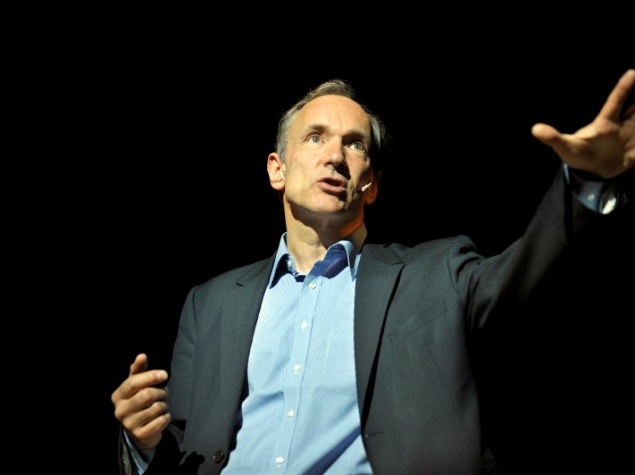- Home
- Internet
- Internet News
- Web Inventor Says Internet Should Be a 'Basic Human Right'
Web Inventor Says Internet Should Be a 'Basic Human Right'

Tim Berners-Lee said Thursday the Internet can help tackle inequality - but only if it comes with the rights to privacy and freedom of expression. The Briton, who launched the Web in 1990, made the remarks as he released his World Wide Web Foundation's latest report tracking the Internet's global impact.
The Web Index found that laws preventing mass online surveillance are weak or nonexistent in more than 84 percent of countries. It also said that almost 40 percent of surveyed countries were blocking sensitive online content to a "moderate or extreme degree," and that half of all Web users live in countries that severely restrict their rights online.
Almost 4.4 billion people - most of them in developing countries - still have no access to the Internet, the Web Index said.
"It's time to recognize the Internet as a basic human right," Berners-Lee said. "That means guaranteeing affordable access for all, ensuring Internet packets are delivered without commercial or political discrimination, and protecting the privacy and freedom of Web users regardless of where they live."
Denmark, Finland, and Norway were ranked as top overall, meaning they were best at using the Internet for economic, political and social progress. At the bottom of a list of 86 countries were Yemen, Myanmar and Ethiopia.
Berners-Lee was working an engineer at the CERN laboratory in Geneva when he proposed the idea of a World Wide Web in 1989.
Get your daily dose of tech news, reviews, and insights, in under 80 characters on Gadgets 360 Turbo. Connect with fellow tech lovers on our Forum. Follow us on X, Facebook, WhatsApp, Threads and Google News for instant updates. Catch all the action on our YouTube channel.
Related Stories
- Samsung Galaxy Unpacked 2026
- iPhone 17 Pro Max
- ChatGPT
- iOS 26
- Laptop Under 50000
- Smartwatch Under 10000
- Apple Vision Pro
- Oneplus 12
- OnePlus Nord CE 3 Lite 5G
- iPhone 13
- Xiaomi 14 Pro
- Oppo Find N3
- Tecno Spark Go (2023)
- Realme V30
- Best Phones Under 25000
- Samsung Galaxy S24 Series
- Cryptocurrency
- iQoo 12
- Samsung Galaxy S24 Ultra
- Giottus
- Samsung Galaxy Z Flip 5
- Apple 'Scary Fast'
- Housefull 5
- GoPro Hero 12 Black Review
- Invincible Season 2
- JioGlass
- HD Ready TV
- Latest Mobile Phones
- Compare Phones
- Tecno Pova Curve 2 5G
- Lava Yuva Star 3
- Honor X6d
- OPPO K14x 5G
- Samsung Galaxy F70e 5G
- iQOO 15 Ultra
- OPPO A6v 5G
- OPPO A6i+ 5G
- Asus Vivobook 16 (M1605NAQ)
- Asus Vivobook 15 (2026)
- Brave Ark 2-in-1
- Black Shark Gaming Tablet
- boAt Chrome Iris
- HMD Watch P1
- Haier H5E Series
- Acerpure Nitro Z Series 100-inch QLED TV
- Asus ROG Ally
- Nintendo Switch Lite
- Haier 1.6 Ton 5 Star Inverter Split AC (HSU19G-MZAID5BN-INV)
- Haier 1.6 Ton 5 Star Inverter Split AC (HSU19G-MZAIM5BN-INV)







![[Partner Content] OPPO Reno15 Series: AI Portrait Camera, Popout and First Compact Reno](https://www.gadgets360.com/static/mobile/images/spacer.png)









